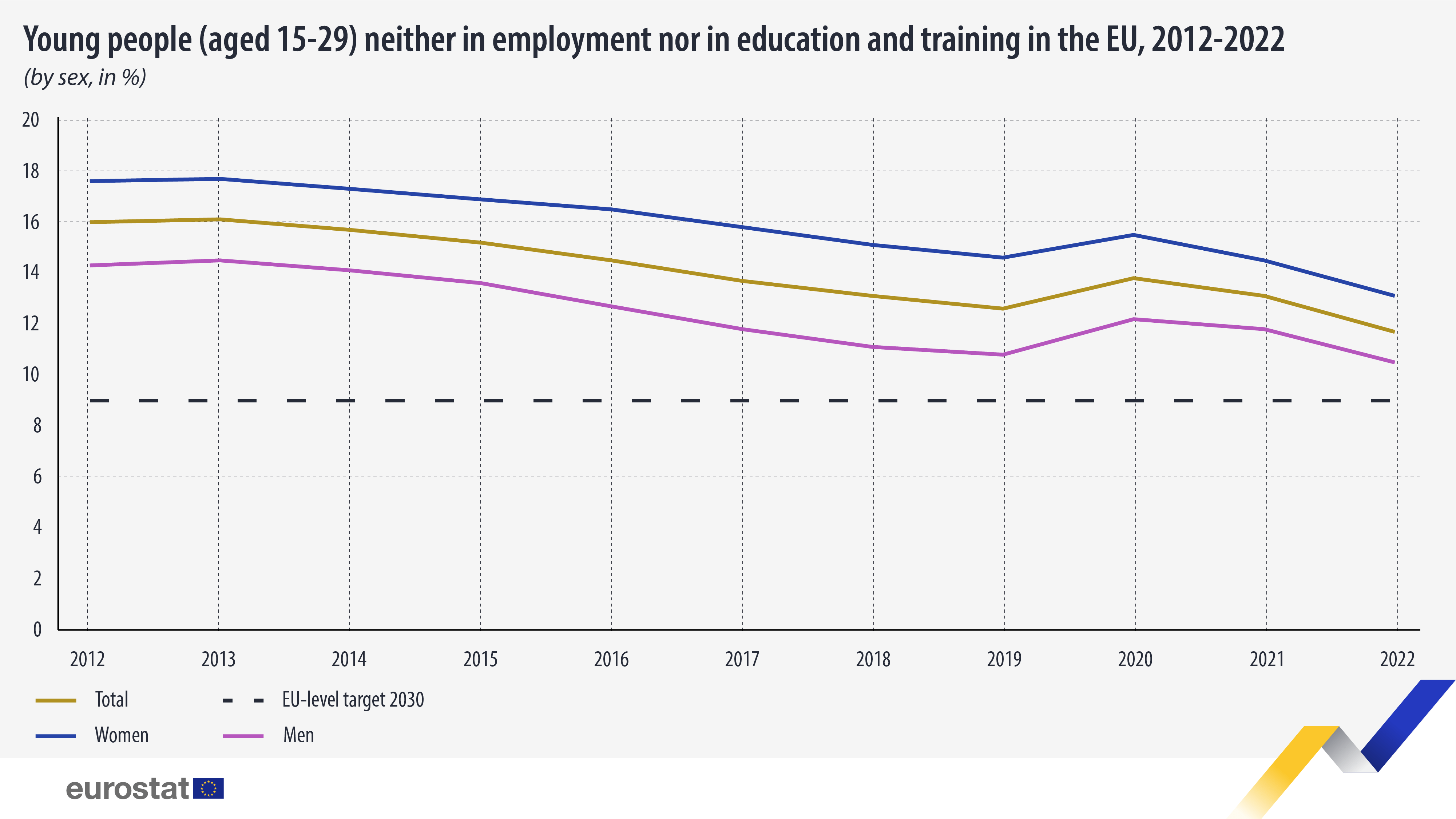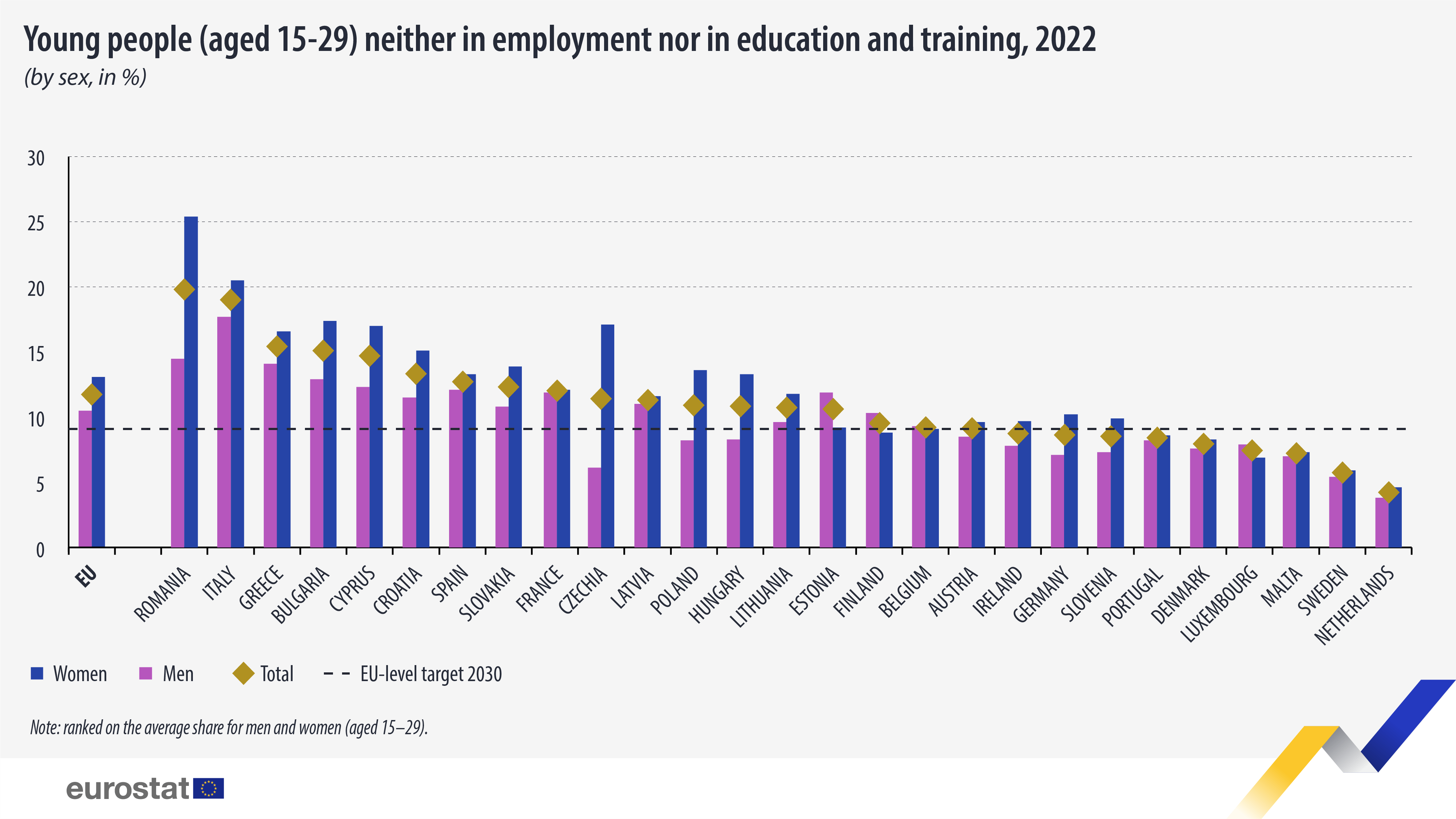In 2022, more than one in ten (11.7%) young people aged 15 to 29 in the EU were neither in employment nor education or training (NEET), indicating a decrease of 1.4 percentage points (pp) compared with 2021.
During the last decade, there was a significant decrease in the share of NEET young adults. In 2012, the EU recorded a rate of 16.0%, which peaked in 2013 (16.1%) and then started a steady decrease. An exception occurred in 2020, when the indicator reached 13.8% during the pandemic (from 12.6% in 2019), but since then, it continued its decreasing trend, reaching 11.7% in 2022.
Reducing this rate is one of the targets of the European Pillar of Social Rights. The goal is to lower the rate of NEET young people aged 15-29 to 9% in 2030.

The NEET rate within the EU and its Member States 2021 |
The Netherlands registered the lowest share of NEETs
Across EU countries, there were wide variations in 2022 when looking at the NEET rates for the age group 15-29. The proportion of NEET in the EU ranged from 4.2% in the Netherlands to a share almost 5 times higher in Romania (19.8%).
Data show that, in 2022, a third of the EU members were already below the 2030 target of 9%, namely the Netherlands (4.2%), Sweden (5.7%), Malta (7.2%), Luxembourg (7.4%), Denmark (7.9%), Portugal (8.4%), Slovenia (8.5%), Germany (8.6%) and Ireland (8.7%).
More young women than men neither employed nor in education
In most EU members, there were differences between the shares of NEET young women and men. In 2022, 13.1% of young women aged 15–29 in the EU were NEETs, while the corresponding share among young men was 10.5%.
The lowest NEET rates for young women and young men were both in the Netherlands: 3.8% for young men and 4.6% for young women.
In contrast, the highest NEET rate for men was recorded in Italy (17.7%), with the highest for women recorded in Romania (25.4%).
In four EU countries, the shares of NEET young women were lower than the associated share of men: Luxembourg (6.9% women vs 7.9% men), Finland (8.8% vs 10.3%), Belgium (9.1% vs 9.3%) and Estonia (9.2% vs 11.9%).
Source: Eurostat









Leave a Reply